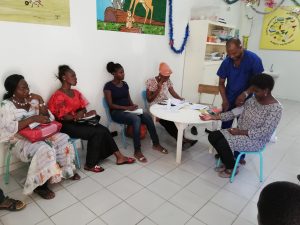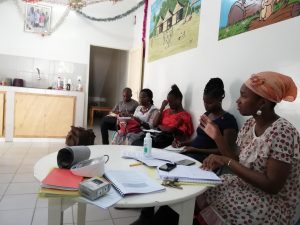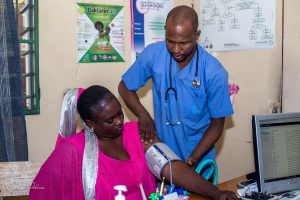
dav
Fatou, a woman of less than 60 years old, comes stumbling into the clinic, supported by a family member. At the door the triage nurse had her cut the long line, and in the emergency room it appears that her paralysis is caused by a stroke. Years ago, she was diagnosed with high blood pressure, but because the headache disappeared, she had stopped taking her medication. Her high blood pressure and perhaps a number of other risk factors now have dramatic consequences.

dav
One out of 4 Senegalese over 40 years old has high blood pressure, according to research. High blood pressure often gives no symptoms and does not always give headaches as some think. The approach is very different than for other diseases such as flu or malaria and requires a risk assessment, a lot of patient education and a well-considered treatment. It is important teaching this approach to our health workers, because cardiovascular disease is increasing dramatically in Senegal. Specialized care for complications, such as a heart attack or stroke, is hardly present. This makes prevention all the more important.
 Since more than a year our clinic has a special hypertension program. Patients with high blood pressure come every month at a special consultation hour, which starts with a group education for patients. The staff has been trained to use a protocol and we have designed a special pulmonary card where lab values and medications are noted. The fact that we are innovative is apparent when we are mentioned in a government meeting as an example of the new approach.
Since more than a year our clinic has a special hypertension program. Patients with high blood pressure come every month at a special consultation hour, which starts with a group education for patients. The staff has been trained to use a protocol and we have designed a special pulmonary card where lab values and medications are noted. The fact that we are innovative is apparent when we are mentioned in a government meeting as an example of the new approach.
From the experience we have gained, we now train the staff of other Christian clinics, starting with our sister clinics in the outskirts of Dakar. One of the important steps is to measure blood pressure in each patient, not only if they have a headache. In this way, high blood pressure is better detected, and all sorts of complications can be prevented.